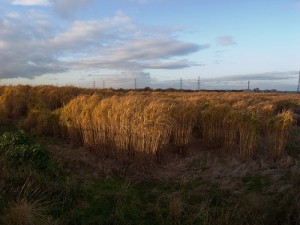Bio fuels are a recent development and one that has attracted a lot of attention from the media, industry and the public. Are they the wonderful all encompassing replacement for fossil fuels?
Or is it just another green flash in the pan?
What is a Bio Fuel?
Well it is really an overall term for many different technologies. It can cover almost anything from hydro electric to wind and solar power, but normally Bio Fuel refers mainly to the alternative fuels that could be used to replace petrol and diesel. The defining characteristic is that a Bio Fuel can be made from any organic source that can be replenished – i.e. from living organisms such as plants, animals and their by products. While the technology is still developing in everything from home heating to motor manufacturers, the general view is that Bio Fuels are a viable alternative to fossil fuels.
 Within the wide arc that covers Bio Fuels there are several different types of fuel and most come from agricultural crops. For example Bio Diesel is made from crops that contain a large amount of natural oil, like rape-seed, and then refined into a compatible bio diesel, which can be mixed with mineral diesel and used in a diesel car.
Within the wide arc that covers Bio Fuels there are several different types of fuel and most come from agricultural crops. For example Bio Diesel is made from crops that contain a large amount of natural oil, like rape-seed, and then refined into a compatible bio diesel, which can be mixed with mineral diesel and used in a diesel car.
Bio Petrol is created in much the same way by crops such as sugar cane which makes ethanol, which can be mixed with petrol to create Bio Fuel for petrol vehicles. One of the down sides is that this type of fuel is more corrosive than normal petrol, so it has to be carefully used.
These are generally regarded as first generation Bio Fuels, with the second generation still in development from being commercially available but are being created from a much wider range of substances. These include manure, food waste, wood, straw and even sewage.
So what’s the big deal? Bio Fuels are renewable and can be replaced as required so there will be an unlimited amount available. It isn’t controlled by OPEC or a resource of a few countries and should be widely available. It also should work well with the existing technologies that are in place, i.e. combustion engines in vehicles. Bio Fuels are also marketed as being carbon neutral because even when burned, they should have offset the amount of CO2 by absorbing it when they were growing.
There are down sides. The environmental credentials of Bio Fuel is subject to some scrutiny when you add in the harvesting, transport and production costs, not to mention burning the actual fuel could lead to an overall increase in carbon in the atmosphere. Then there are deforestation concerns as areas of land are cleared to make way for the new crops required and the associated costs and environmental impact.
Finally, there is cost. With any new technology it is not quite there yet and the major companies involved will want return on investment. If this is coupled with the demand for the various types of crop this could lead to cost increases in the final product, as well as cost increases in other types of food stocks.
The basic truth is that Bio Fuels are still in development. We are probably 5 to 10 years away from a viable future that depends on Bio Fuel. Will it change the world? That is unknown, but studies have showed that Bio Ethanol Petrol can deliver the same energy as their fossil fuel equivalent, but release 25% less of the greenhouse gas when they are consumed. For good or ill, Bio Fuels are likely to stay in a world where we are dependent on fossil fuels which are running out.
Written by Symon Silvester
Photo by D H Wright